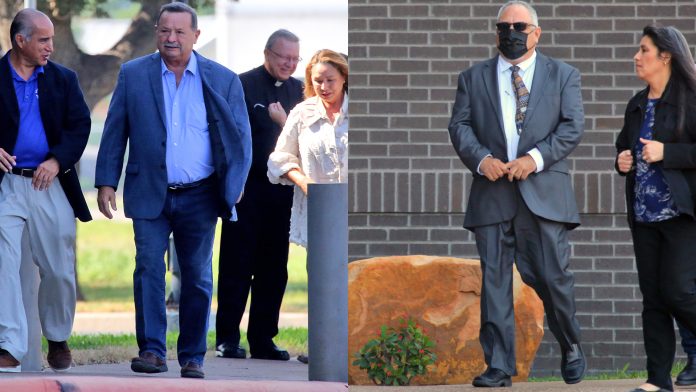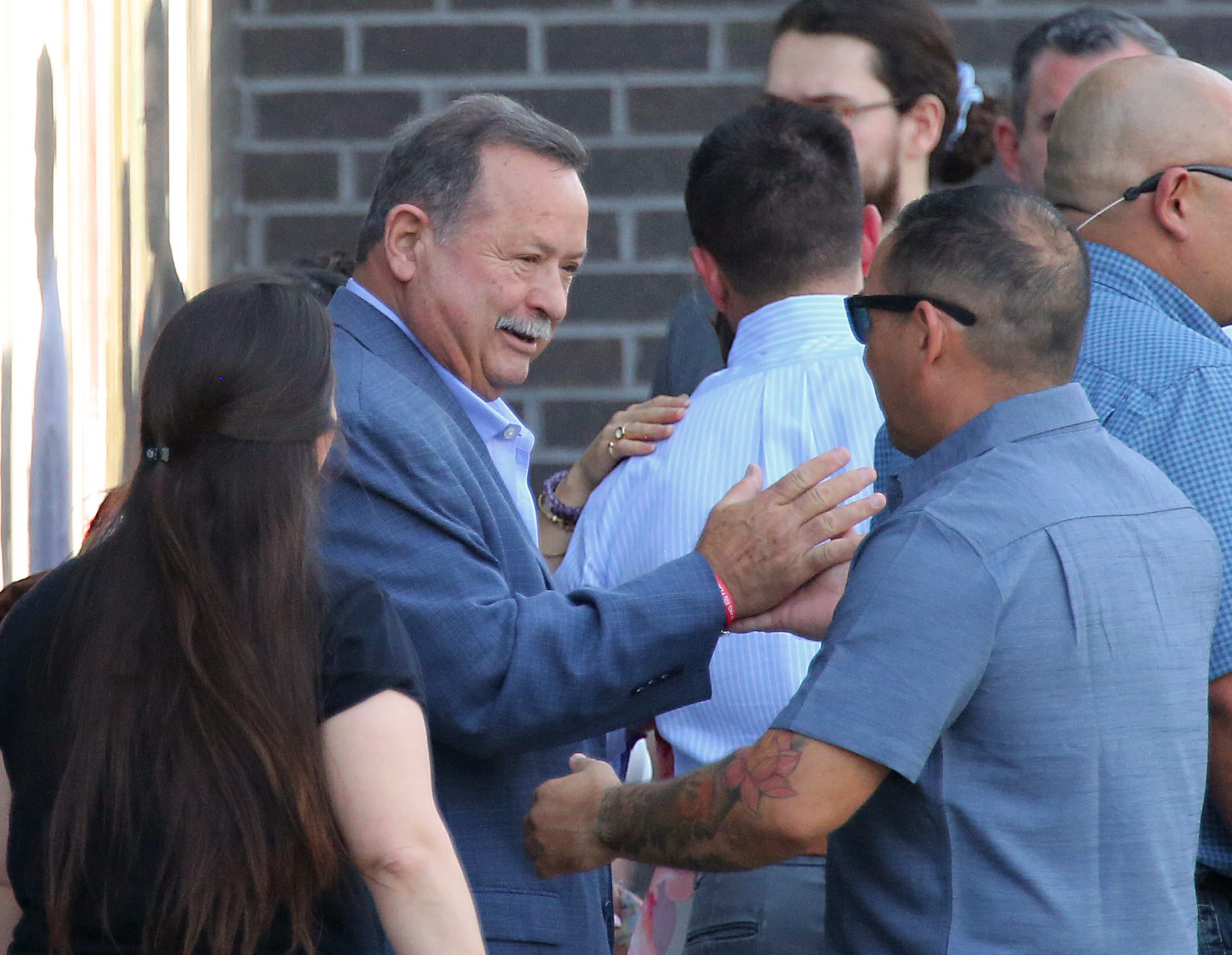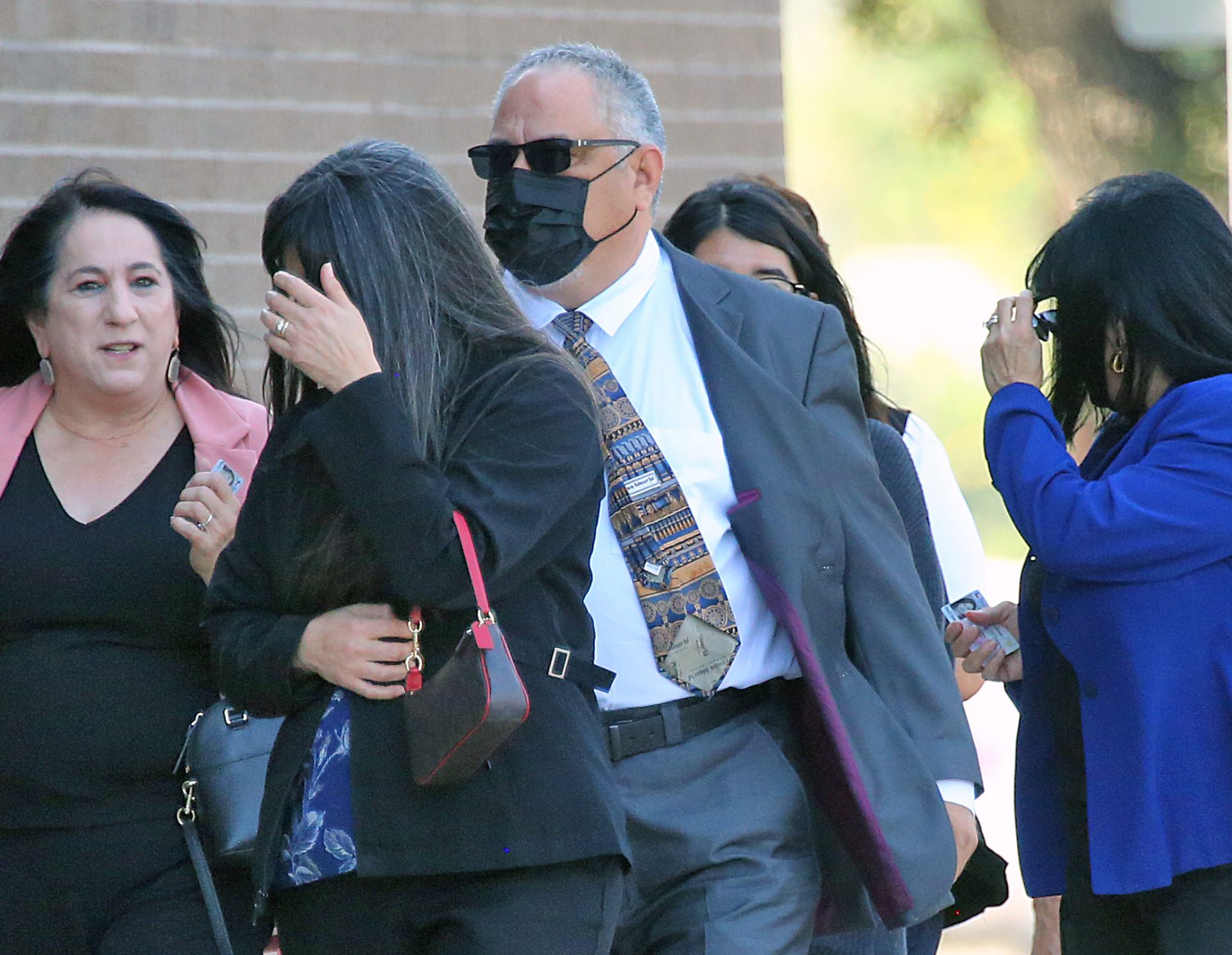
|
Only have a minute? Listen instead
Getting your Trinity Audio player ready...
|
Two men convicted in 2022 of defrauding the city of Weslaco out millions of dollars during a $42.5 million rehabilitation of the city’s water and wastewater infrastructure are asking a federal appeals court to overturn their convictions and vacate their lengthy prison sentences.
Attorneys for Arturo “A.C.” Cuellar and Ricardo “Rick” Quintanilla presented oral arguments before a three-judge panel of the Fifth Circuit Court of Appeals last week.
The two men are hoping the higher court will overturn their convictions and order a new trial, or at the very least, overturn their sentences and order a re-sentencing.
In October 2022, a jury convicted them of 70 counts of bribery, money laundering and wire fraud as part of a yearslong conspiracy involving half a dozen people, as well as several construction and engineering firms tasked with the rehab project.
U.S. District Judge Micaela Alvarez sentenced Cuellar to 20 years, and Quintanilla to nearly 17 years in federal prison in January 2023.
The judge also held them liable for $4.1 million in restitution — the dollar figure that former Rio Grande City municipal judge Leonel Lopez Jr. had admitted to receiving as part of the bribery conspiracy.
In their combined appeal, they make several arguments that they claim require their convictions be overturned.
They claim prosecutors altered the indictment in a way that improperly allowed the jury to be able to convict them on “facts not presented to a grand jury,” according to a copy of their 65-page brief.
Prosecutors in an April 2019 superseding indictment narrowed the timeframe that they alleged the criminal conspiracy occurred — reducing it from between 2008-2016 to between 2011 and 2014.
Prosecutors also failed to include an “element” of the crime, according to Cynthia Orr, Cuellar’s attorney.
“The missing element is, first of all, that any bribe was paid for any tangible property,” Orr argued.
“That quid pro quo … is missing. We have an indictment and in the jury instructions, (that) the thing of value was the bribe, not what was obtained for it,” she said.

Orr cited a June 26 U.S. Supreme Court decision that found that “payments made to an official after an official act as a token of appreciation” amount not to bribes, but instead, gratuities, which are legal.
The Supreme Court found that the timing matters when a payment is made to a public official.
Should an official receive payment before casting a vote or making a decision in their official capacity, then that’s a bribe.
However, if that official makes a decision and then receives a payment some time afterward, then that is a gratuity.
Cuellar and Quintanilla also assert that prosecutors violated their right to confront their accuser by allowing the jury to view video surreptitiously recorded by Lopez, who had become government informant at least a year before charges were levied against Cuellar and Quintanilla.
Lopez died of cancer in November 2020, nearly two years before the case ultimately went to trial.
Cuellar and Quintanilla argued that the recordings Lopez made of conversations between himself, Quintanilla and fellow coconspirator, then-Weslaco Commissioner Gerardo “Jerry” Tafolla, amounted to impermissible hearsay.
Quintanilla’s attorney further argued that Lopez’s recordings were self-serving.
“One of the issues is whether it’s furtherance of the conspiracy and just the conversation is more that it’s in furtherance of Mr. Lopez trying to get incriminating information from Mr. Quintanilla trying — and he didn’t really do a very good job,” attorney Walter Reaves said.

“This was also a couple of years after … everything had happened. This was in 2018 … long after the payments had been made,” Reaves added a moment later.
Assistant U.S. Attorney Renata Gowrie said Lopez’s recordings — and the conversations they captured — were admissible because they added context to the conspiracy allegations.
Cuellar and Quintanilla’s brief also argues that Alvarez, the judge who presided over the eight-day trial, failed to recuse herself after Cuellar provided sufficient cause for her to do so.
Several years before prosecutors indicted Cuellar, Alvarez was involved in a personal injury suit against his company, J-III Trucking, after one of the company’s drivers struck Alvarez’s vehicle.
The two sides ultimately settled the suit, but Cuellar’s attorneys allege that Alvarez presiding over the criminal trial created an appearance of impropriety.
“No reasonable person with knowledge of the circumstances would harbor any doubts about Judge Alvarez’s impropriety,” Gowie said.
The federal prosecutor also rebuffed the defendants’ claims that Alvarez displayed personal bias during the proceedings.
“It’s clear from case law that judicial criticisms, comments, rulings are not enough to show bias unless it rises to the level of a deep-seated antagonism, which did not happen here,” Gowie said.
As proof of Alvarez’s impartiality, Gowie noted that judge made what is called a “downward departure” when handing down Cuellar’s sentence.
After considering all the factors that would have informed the potential range of punishment, Alvarez actually sentenced Cuellar to less time than recommended under the Federal Sentencing Guidelines.
The three appellate judges had few questions for the attorneys. It is unclear when they will render their decision on the case.



